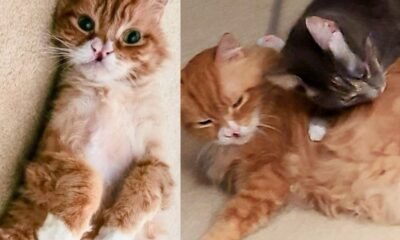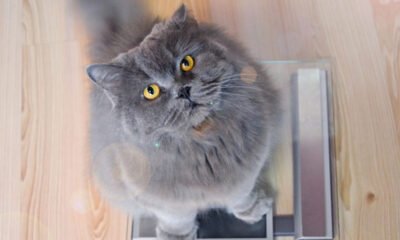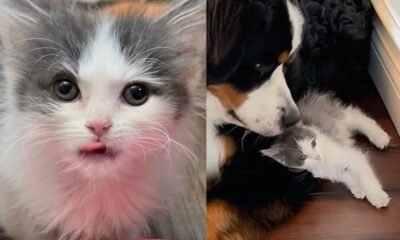Cat Nutrition
Heart and Feline Flee Lombrics Prevention
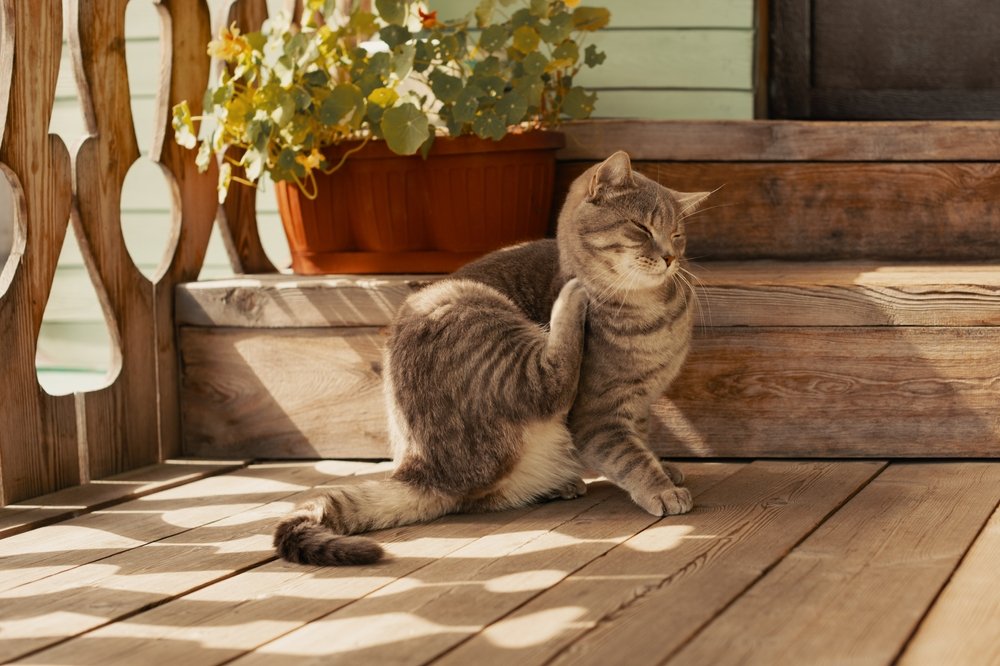

March 8, 2025 3:15 pm
As a cat’s owner, you want nothing more than the best for your feline friend, making sure they are comfortable, happy and, most importantly, healthy. One of the key components of feline medical care that is often overlooked is Parasites prevention. Specifically, the worm of the feline heart and flea prevention are two critical aspects of keeping your cat safe from damage. Both parasites can cause severe cats for cats, some of which can be potentially mortal. In this blog, we will explore the importance of feline worm and flea prevention, the dangers that these parasites represent and how can your cat can effectively protect.
Why do the heart worm and feline fleas import
The diseases and fleas of the feline heart worm may not be the first things that come to mind when you think about your cat’s health. After all, cats are often considered less susceptible to heart worms than dogs. However, that does not mean that they are immune. The heart worms are parasites that mainly affect dogs but can also infect cats, causing serious damage to their lungs, heart and other organs. Cats are often described as “incidental guests” for heart worms, which means that they can still develop the disease, but worms generally do not completely mature as they do in dogs. Even so, the presence of heart worms can cause severe respiratory distress, cough, vomiting and other dangerous symptoms.
Similarly, fleas are a common discomfort that affects many cats, especially those that come out outdoors. Fleas can cause intense itching, skin infections and even transmit tapegures to your cat. In some cases, fleas can lead to more serious health conditions such as anemia, particularly in cats or larger cats, since they are more susceptible to blood loss. Fleas also contribute to the spread of other diseases, such as flea allergy dermatitis, which can cause serious allergic discomfort and reactions in some cats. The risk of flea infestation and the potential damage they can cause makes prevention an essential part of feline medical care.
How the disease of the feline heart affects cats
The heart worm disease in cats is often misunderstood because cats do not usually exhibit the same symptoms as dogs. Cats can be infected with heart worms when they bite through an infected mosquito that transports lombrics of hearts. The larvae migrate through the bloodstream, finally reaching the heart and the lungs, where they become adult worms. In cats, worms generally do not survive enough time to mature in completely adult adults, but they can still cause significant damage. Even a few heart worms can lead to respiratory disease associated with the heart worm (hard), a condition that results in inflammation, accumulation of fluids in the lungs and difficulty breathing.
Unlike dogs, cats have a more robust immune system that can sometimes expel the worms from the heart before maturing. However, this immune response can also lead to severe inflammation in the lungs, causing symptoms such as coughing, wheezing, vomiting and loss of appetite. Unfortunately, diagnosing heart worm disease in cats can be difficult since typical blood tests used for dogs are not so reliable for cats. As a result, many cat owners do not know that their cats have contracted heart worms until the symptoms become severe.
Due to the risks associated with heart worm disease, prevention is crucial. In most of the areas where mosquitoes prevail, the prevention of the heart worm is essential for cats, regardless of whether or not they leave. Preventive medications can help prevent heart worm larvae from developing in your cat’s system and giving peace of mind when your cat is protected.
Flea prevention: a concern throughout the year for cats
Fleas are perhaps the most common external parasite that affects cats, and can be a real problem, particularly in the warmer months when fleas are more active. While fleas are small and easily overlooked, they can cause serious problems if they are left without control. The fleas borders your cat to feed your blood, and in doing so, they can introduce harmful pathogens into your cat’s bloodstream. In addition, fleas are responsible for a variety of other problems, including skin infections, hair loss and allergic reactions.
Fleas are also known to reproduce rapidly, which can lead to infestation in a very short time. If you notice that your cat is scratching excessively or licks your further fur than usual, it is a good idea to verify if there are fleas. Fleas are not always visible to the naked eye, but it can notice black milestones of flea earth or small red bites on your cat’s skin. The presence of fleas can also be confirmed using a fine -tooth comb to inspect your cat’s fur.
Beyond the discomfort caused by flea bites, fleas can transmit other diseases, such as tapeguras. If a cat ingests an infected flea while preparing, it can be infected with tenias, which can cause digestive problems and weight loss. Fleas can also trigger flea allergy dermatitis, an allergic reaction that leads to intense itching, hair loss and skin infections. Cats that suffer from flea allergies may experience continuous skin problems that require medical treatment.
Given the rapid reproduction of fleas and the variety of health problems they cause, it is essential to have a comprehensive flea prevention strategy. Prevention is often recommended throughout the year, since fleas can prosper in different environments and can easily be transmitted from one animal to another. Flea prevention treatments are available in many forms, including topical treatments, oral medications and flea necklaces. Treating your cat for fleas is an important step to prevent problems related to fleas.
Effective prevention strategies for worm and fleas of the feline heart
When it comes to the prevention of heart worm and feline fleas, there are several options available to ensure that your cat remains protected. For the prevention of the heart worm, the most common approach is to administer monthly preventives of heart worms, which are available in oral or topical forms. These medications work by killing the larvae of the heart worm that are transmitted through mosquito bites. Some preventives also provide protection against other parasites, such as Intestinal worms or fleas, which offer a comprehensive solution for their cat’s health needs.
For flea prevention, there is a variety of treatments that can help keep your cat free of fleas. Topical flea treatments are among the most popular options, since they are easy to apply and generally provide lasting protection. Oral flea medications are also available, which work by killing fleas that brunetize your cat. Flea necklaces are another option, and although they can be effective, other methods are often less reliable. It is important to choose a flea treatment that is safe and effective for your cat, taking into account factors such as your age, weight and any existing health condition.
In addition to using preventive medications, you must also take measures to minimize your cat’s exposure to parasites. If your cat spends time outdoors, keep them indoors during the maximum mosquito activity, which usually occurs during dusk and sunrise. Similarly, regularly cleaning your home and patio can help reduce the presence of fleas and other parasites. Aspiring carpets, bedding and upholstery, and washing your cat’s bedding frequently, you can help eliminate fleas and flea eggs from your home.
The importance of regular veterinary checks
Although the prevention of fleas and worms of the heart are essential components of feline attention, regular veterinary controls are equally important. A veterinarian can evaluate the general health of his cat, monitor the signs of infestations of worms or fleas of the heart and recommend the most appropriate preventive treatments for his pet. During routine visits, your veterinarian can perform tests to verify if there are heart worms, even if your cat does not show symptoms and helps you keep the course with flea control.
In addition to monitoring parasites, your veterinarian will also provide valuable tips on other aspects of your cat’s health, such as nutrition, vaccines and dental care. Early detection and intervention can prevent many health problems from becoming serious, and the guide of a veterinarian is crucial to ensure that your cat leads a long and healthy life.
Conclusion
The heart worm and the prevention of feline fleas are integral parts of the responsible property of pets. By understanding the risks associated with these parasites and taking proactive measures to prevent them, you can make sure your cat remains healthy and happy in the coming years. Regular veterinary visits and correct preventive treatments will protect their cat from the dangers of heart and fleas worms infestations, helping them to live their best life.
Do you need a cat veterinarian in Alexandria, goes?
Welcome to Kingstowne Cat Clinic! Kingstowne Cat Clinic is a local property CAT clinic centered on the community. We specialize in giving your feline friend the attention they need. We offer well -being exams, surgery, dentistry, vaccines and acupuncture. We also provide sedated preparation and in the euthanasia home. Kingstowne Cat Clinic is dedicated to providing quality medical and surgical care for all cats. Contact us Today for an appointment!
Categorized in: Cat Health, flea prevention
This publication was written by admin
Cat Nutrition
Fecal microbiota transplants for drug resistant epilepsy in dogs | Animal Welfare Magazine
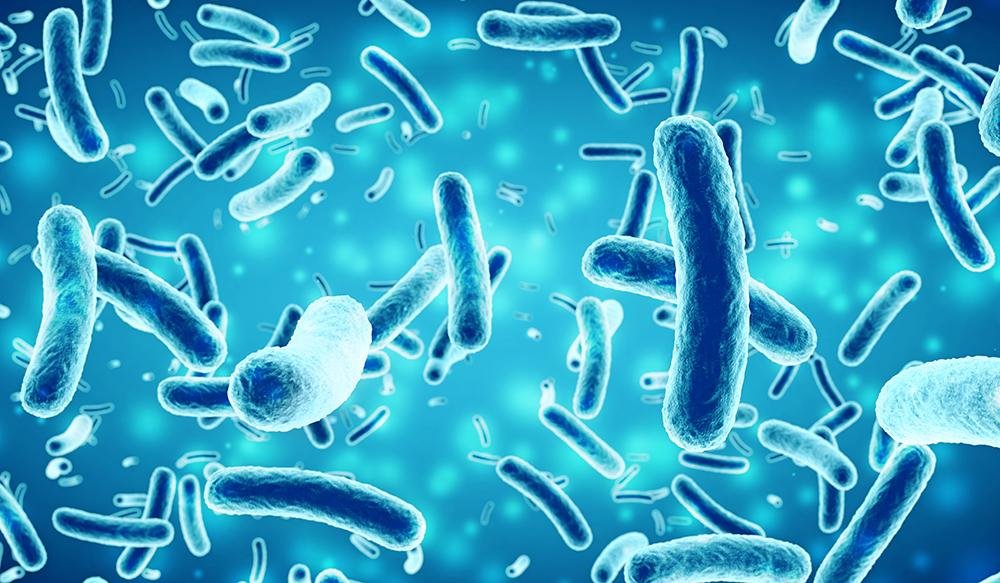
Epilepsy management in dogs can be a challenge, especially when medication resists. Many of these dogs suffer not only for seizures, but also anxiety and symptoms similar to ADHD.
Recently, researchers at the Faculty of Veterinary Medicine and Biomedical Sciences of Texas A&M (VMBS) and the Systems Neuroscience Center in Hannover, Germany, made a fascinating discovery. They discovered that fecal microbiota transplants (FMT) for drug -resistant epilepsy in dogs can help reduce negative mental health symptoms.
FMT is a non -invasive treatment administered by Enema. It has become popular in human medicine in the last two decades, thanks to the increase in scientific understanding of intestinal microbioma.
Scientists have also discovered that intestinal microbioma plays an even more important role in influencing other parts of the body. This includes the brain, in what is called the axis of the intestinal brain.
“We know that high levels of mental stress can affect intestinal motility,” said Dr. Jan Suchodolski, associate director of Research and Chief of Microbioma Sciences in the Gastrointestinal Laboratory of Texas A&M. “Several neurological diseases, including disease and stroke of Alzheimer’s stroke, also seem to cause intestinal symptoms in patients and vice versa.
“Studies have shown that changing the intestine microbiome with probiotics or diet alterations can affect the symptoms of the disease, so there is a lot of evidence of this relationship,” he adds. FMT is just a type of treatment that makes use of the intestinal-cerebro relationship, and is demonstrating to be highly effective.
For him studyThe researchers treated nine dogs with drug -resistant epilepsy. “Each patient received FMT three times for a period of several weeks and was monitored during follow -up quotes,” said Dr. Suchodolski.
“After treatment, dogs showed significant improvements in their mental health, including reduced anxiety behavior and a better quality of life”, while the frequency of seizures did not change significantly, researchers noticed a definitive improvement in the mental well -being of dogs.
This indicates that fecal microbiota transplants for drug -resistant epilepsy in dogs are an effective approach.
“If you think about microbiome as a garden, FMT is like putting in a completely new ecosystem,” added Dr. Suchodolski. “You are adding several bacteria and other organisms to see if something changes.
“While we still do not understand the mechanism that causes these behavioral improvements, we hope to continue developing new ways to help patients with medication resistant diseases using microbiome science.”
Publication views: 228
Animal Wellness is the Journal of Health and Natural Lifestyle of North America for dogs and cats, with a reader of more than one million every year. AW presents articles by some of the most recognized experts in the pet industry, with topics ranging from diet and health issues, to articles on training, physical state and emotional well -being.
!function(f,b,e,v,n,t,s){if(f.fbq)return;n=f.fbq=function(){n.callMethod?
n.callMethod.apply(n,arguments):n.queue.push(arguments)};if(!f._fbq)f._fbq=n;
n.push=n;n.loaded=!0;n.version=’2.0′;n.queue=();t=b.createElement(e);t.async=!0;
t.src=v;s=b.getElementsByTagName(e)(0);s.parentNode.insertBefore(t,s)}(window,
document,’script’,’
Cat Nutrition
Penalty poisoning risks: Accidental ingestion of increasing human medicines | Animal Welfare Magazine
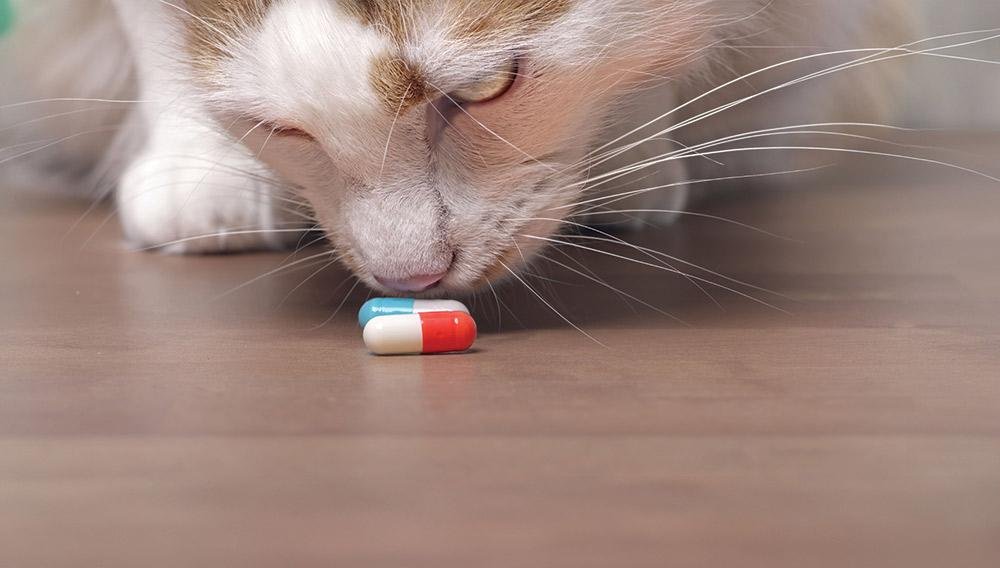
It addresses the parents of dogs and cats that take medications for depression, anxiety or aggregate/ADHD. Calls to the venom aid line for pets involving accidental exhibitions to antidepressants and antianxiety medications increased by 84.9% between 2019 and 2022. Then only 3.2% fell in 2023.
Toxicology experts in the pet aid line reported an 81.2% increase in calls on ADD/ADHD medications during the same period of time. There was a small 1% drop in 2023. In short, the accidental ingestion of human medicines, including those of ADD/ADHD and depression, increased more than 80% during this five -year period.
“The use and public discussion about this type of medicines has increased over the years, which has helped many people improve their quality of life,” said Dr. Renee Schmid, veterinary toxicologist and director of Veterinary Medicine in the Pet Pot Pot Pot help line. “In addition, according to a recent study, the antidepressant rate dispensed to young people increased dramatically during COVID-19 pandemic.”
Toxicology experts of the pet venom help line used their Toxins Tool for analyzing data from calls that involve accidental exhibitions to these medications. The analysis revealed that Texas had the largest number of ADD/ADD/ADD exposure calls related from 2019 to 2023, closely followed by California and Florida.
“Regardless of the state you live in, mental health medicines can have fatal consequences when animals ingest,” said Dr. Schmid. “Changes in cardiovascular and nervous systems are the main areas of concern. Specific symptoms vary according to the ingested medication.
“The increase in calls involving antidepressants illustrates the danger that pets have access to the medication of their human partner,” he added. Therefore, it is crucial to maintain all antidepressants and other recipes out of reach of your dog or cat to avoid accidental ingestion of human medications.
Publication views: 201
Animal Wellness is the Journal of Health and Natural Lifestyle of North America for dogs and cats, with a reader of more than one million every year. AW presents articles by some of the most recognized experts in the pet industry, with topics ranging from diet and health issues, to articles on training, physical state and emotional well -being.
!function(f,b,e,v,n,t,s){if(f.fbq)return;n=f.fbq=function(){n.callMethod?
n.callMethod.apply(n,arguments):n.queue.push(arguments)};if(!f._fbq)f._fbq=n;
n.push=n;n.loaded=!0;n.version=’2.0′;n.queue=();t=b.createElement(e);t.async=!0;
t.src=v;s=b.getElementsByTagName(e)(0);s.parentNode.insertBefore(t,s)}(window,
document,’script’,’
Cat Nutrition
7 Reasons to buy natural cat bunk – Cats.com
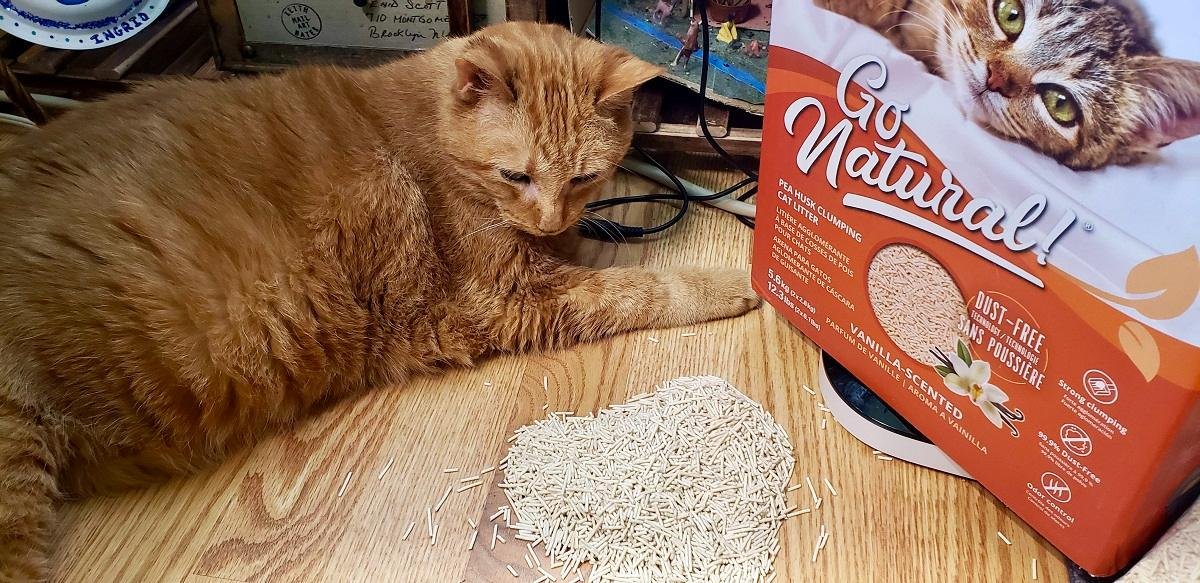
Liz Coleman / Cats.com
As consumers seek to minimize their carbon footprint, natural cat sand is having their day, a movement that we can support. Unfortunately, there is a lot of wrong information about natural garbage. We are here to clarify the confusion and highlight their strengths, weaknesses and who will benefit more.
To clarify, when we refer to “natural” garbage in the pet industry, we refer to garbage made of organic materials that break down more easily than traditional clay. While clay garbage is obtained from the earth and can be considered technically “natural”, it is not the most ecological option. Natural litters are made with renewable resources such as wood, corn and recycled paper. Not only are they better for the planet, but they also offer practical benefits for cat parents.
Are you not sure if natural garbage is for you? Next, we will present the main benefits, and frankly we will call common inconveniences. Here are seven reasons to consider sustainable garbage, such as Catit’s Go Natural Pea Husk Litter.
1. is better for the environment

Liz Coleman / Cats.com
Natural Cat Litter offers a clear environmental advantage, both in terms of production and its disposition.
While the bentonite clay is extracted through strips mining, a destructive process that harms ecosystems, natural litters are made of renewable resources such as wheat, soybeans and recycled paper.
These materials often come from administered practices sustainably. For example, wood -based litters are derived from harvested forests responsible, and Tofu -based products use leftover remains. Catit’s Natural Litter Upcycles Post-Consumer Materials that would otherwise be discarded, including peas and bamboo peels.
Many natural brands also focus on ecological packaging. Catit, for example, presents recyclable cardboard boxes and vacuum bags that save space and reduce CO2 emissions during transport.
When it is time to replace garbage, natural options are biodegradable and break down over time, reducing waste in landfills.
2. It is healthier for cats
Clay garbage often contains harmful chemicals, dyes and fragrances. Natural litters, on the other hand, are generally made of non -toxic foods of food degree. These are softer in the lungs, skin and even your cat’s belly, if you try a bite.
Instead of trusting hard additives to combat the smell, natural litters include materials that naturally absorb and neutralize odors. They also incorporate ecological accessories, such as sodium bicarbonate, to handle odors.
In addition, natural garbage tends to produce less dust, which is better for cats with asthma or allergies, as well as sensitive humans. Changing to natural garbage can make everyone at home, in account or of another, a little easier.
While natural garbage is generally safer, two potential health dangers to observe are pests and mold. If it is not stored correctly, natural litters such as corn and wheat can be susceptible to these problems.
3. It is (usually) less disorder than clay

Liz Coleman / Cats.com
When it comes to cleaning, natural garbage has an edge on clay. In general, natural materials produce less dust, and any generated dust is safer to breathe than small clay particles.
Some natural formulas, such as the garbage of the Catit pea peel, are designed on purpose with larger granules that track less, keeping the garbage inside the box instead of their floors. However, you will also find natural litters that are light and come in fine granules. These can actually lead to more disorder than clay.
Something to consider: although they generally do not include artificial fragrances, some natural litters will have a different smell under their ingredients. (that is, pine pellets will smell wood and the tofu has a decidedly sweet smell). We recommend choosing something what I can live with.
4. Natural litters often exceed clay
Natural litters can have a bad reputation for being ineffective, but some brands can overcome clay in key areas. I have tried a variety of litters over the years, and I have discovered that many natural options are grouped and control better than some economic clay litters.
That said, experiences will vary. Not all natural options are equally working. Each material has different strengths and weaknesses, and there are compensation with any garbage.
Pine, for example, is highly absorbent, and corn tends to group well. In the tests, we learned the garbage of the Catit peas shell, such as other similar litters based on Tofu, admirably administered. However, paper granules need more frequent changes and generally have mediocre smell control.
5. Easier disposal
Natural garbage is often biodegradable, which means that you can compose it or use it as a mulch for your garden. This ecological approach helps reduce waste. Both the garbage of the Catit pea peel and the ultra light litter are compostable; Just remember to eliminate dirty groups first to avoid the spread of pathogens.
In contrast, clay garbage takes a long time to break down and can sit on landfills for years. It is also heavier, which makes the elimination more difficult.
A natural sand is even downloadable, although it must ensure that your plumbing can handle it and that local ordinances allow it.
6. It is light and easy to manage

Liz Coleman / Cats.com
Unlike heavy clay, which can make changes in the sand box feel like training, many natural options are easy to raise, carry and pour. This is ideal for those who live in high -height apartments or for anyone who finds heavy bags difficult to handle.
With a light natural length, it is not only easier to hang the sand tray, but to change the complete box becomes a simpler task. Whether you have mobility problems or simply prefer a lighter option, change to natural garbage can lighten your load.
7. It is softer than clay
Most natural litters offer a more gentle touch compared to clay, which can be rough in delicate legs. Materials such as corn and pine are soft. They can make the sand box more comfortable for cats with sensitive feet or joint problems. This additional comfort could mean the difference between your cat voluntarily using the box or avoiding it completely (in favor of a more comfortable surface, such as your bed).
While some cats may need a little time to make the transition from thick clay to soft granules (and some, like my amber cat, may not take it at all), the benefits of a softer surface will be a change of play for many cats.
Natural garbage will not be a homer for each cat or home. And, in most cases, you must detect additional dollars to fill your boxes. But, for some cat cats, a high -performance natural litter marks all boxes.
If you are looking for a litter that is friendlier for the planet, safer for your cat and easier to drive, it is definitely worth considering a natural garbage. Its performance and efficiency may surprise it (in the best way).
-

 Cat Facts4 months ago
Cat Facts4 months agoThe Times of the Gatera grass
-

 Cat Facts5 months ago
Cat Facts5 months agoDelicious cat tattoo ideas – Modern cat
-

 Cat Behavior5 months ago
Cat Behavior5 months agoKnow brown cats – Modern cat
-
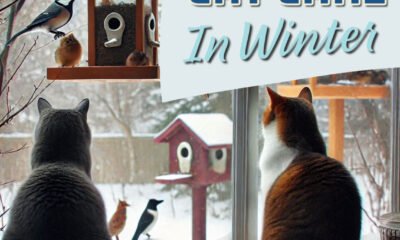
 Cat Behavior4 months ago
Cat Behavior4 months agoGreater Cat Winter Care: Non -Cold Old | Cat wisdom 101 Layla Morgan Wilde
-

 Cat Behavior4 months ago
Cat Behavior4 months agoThe full guide of Cat Cafes in the United Kingdom
-
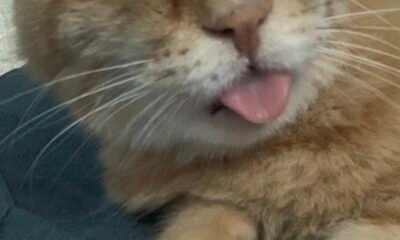
 Cat Facts4 months ago
Cat Facts4 months agoStrange behaviors of explained cats – Cat Behavior Alliance and Carolina Cat Sanctuary
-
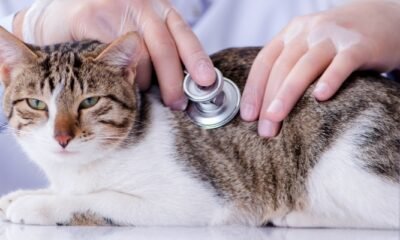
 Cat Facts5 months ago
Cat Facts5 months agoHow Often Do You Take a Cat to the Vet?
-
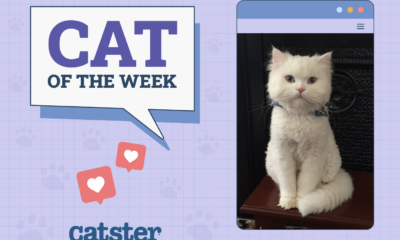
 Cat Facts4 months ago
Cat Facts4 months agoCatster Photo Contest: Winners of the Week of Cats of the Week (March 20, 2025) – Catster



